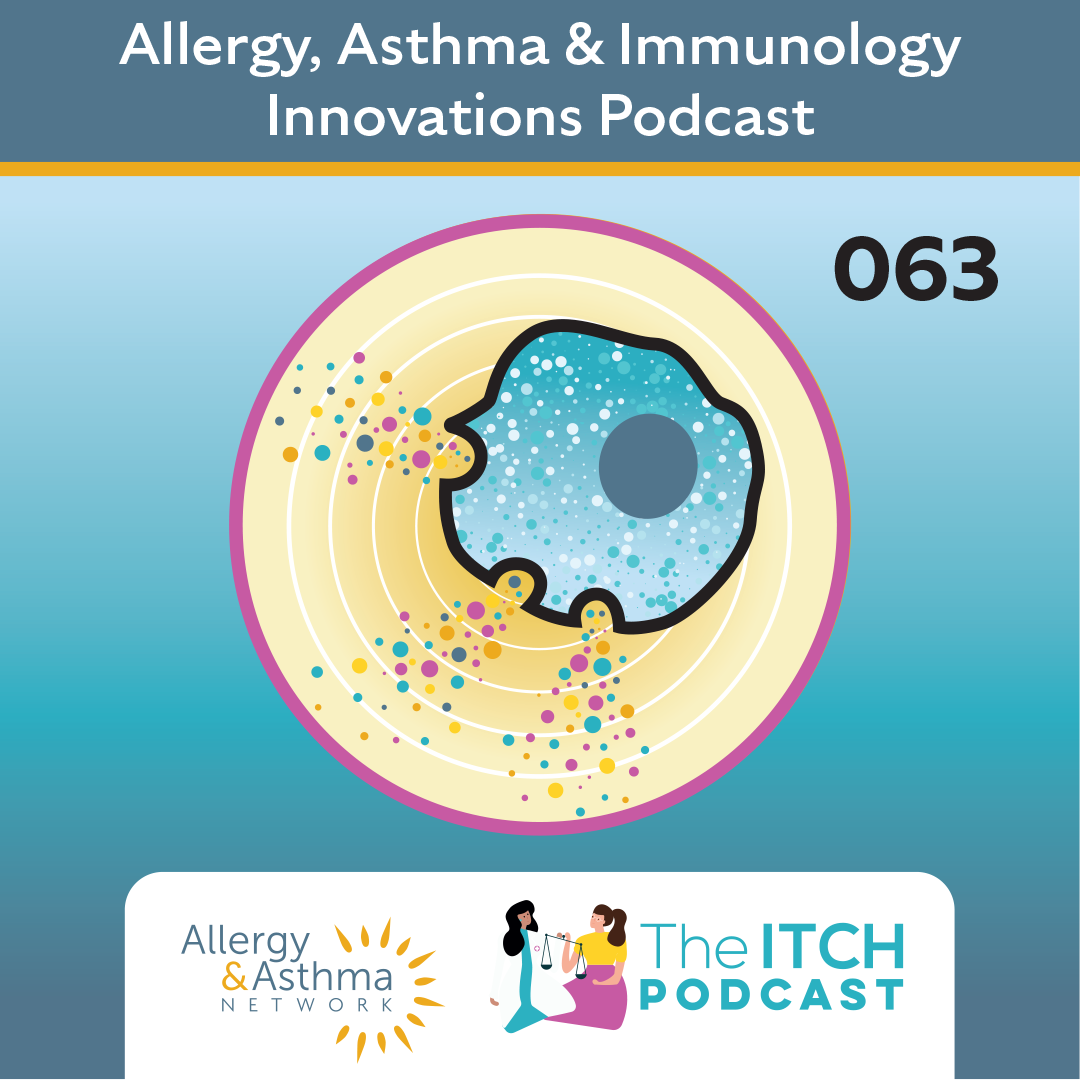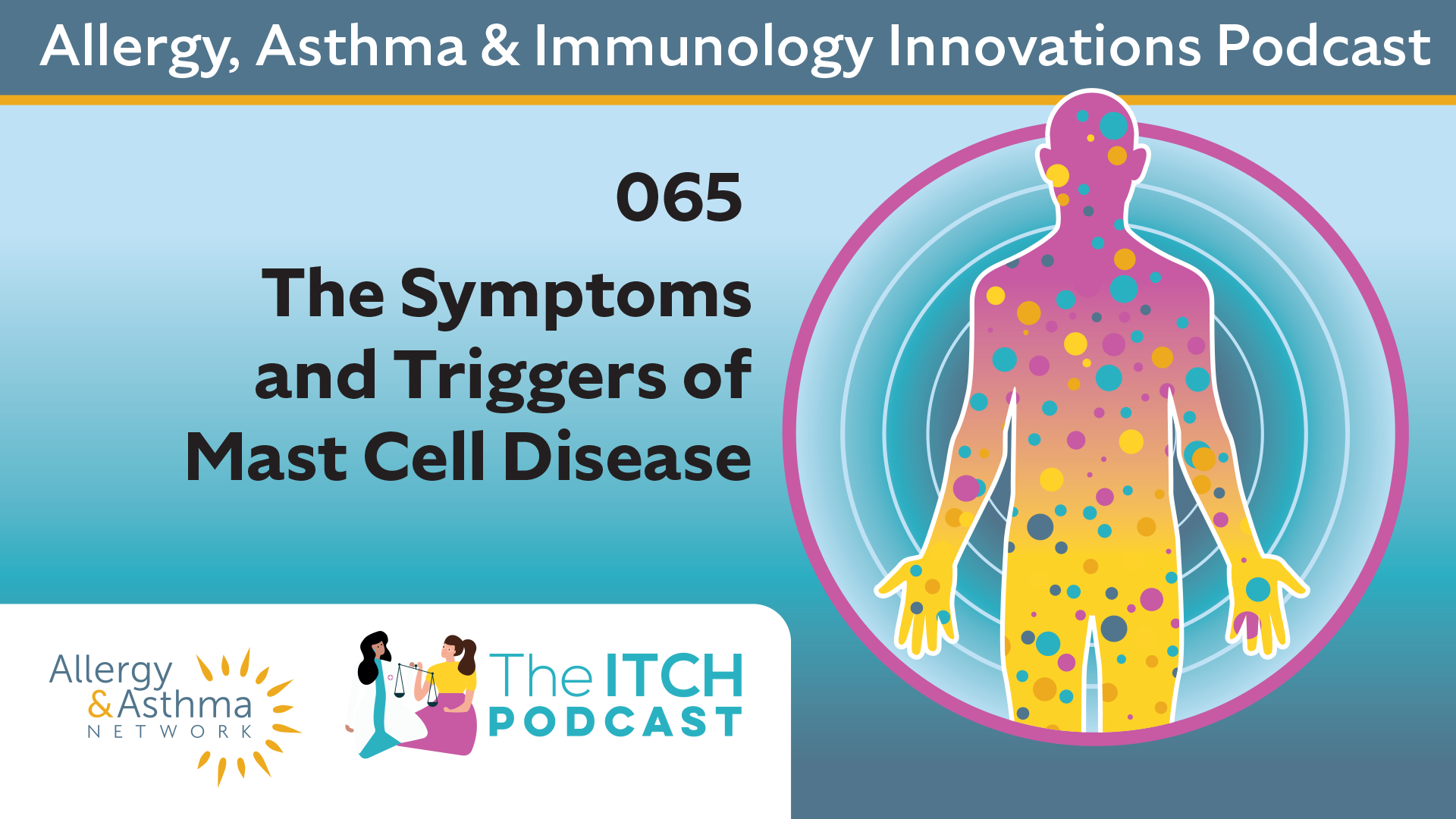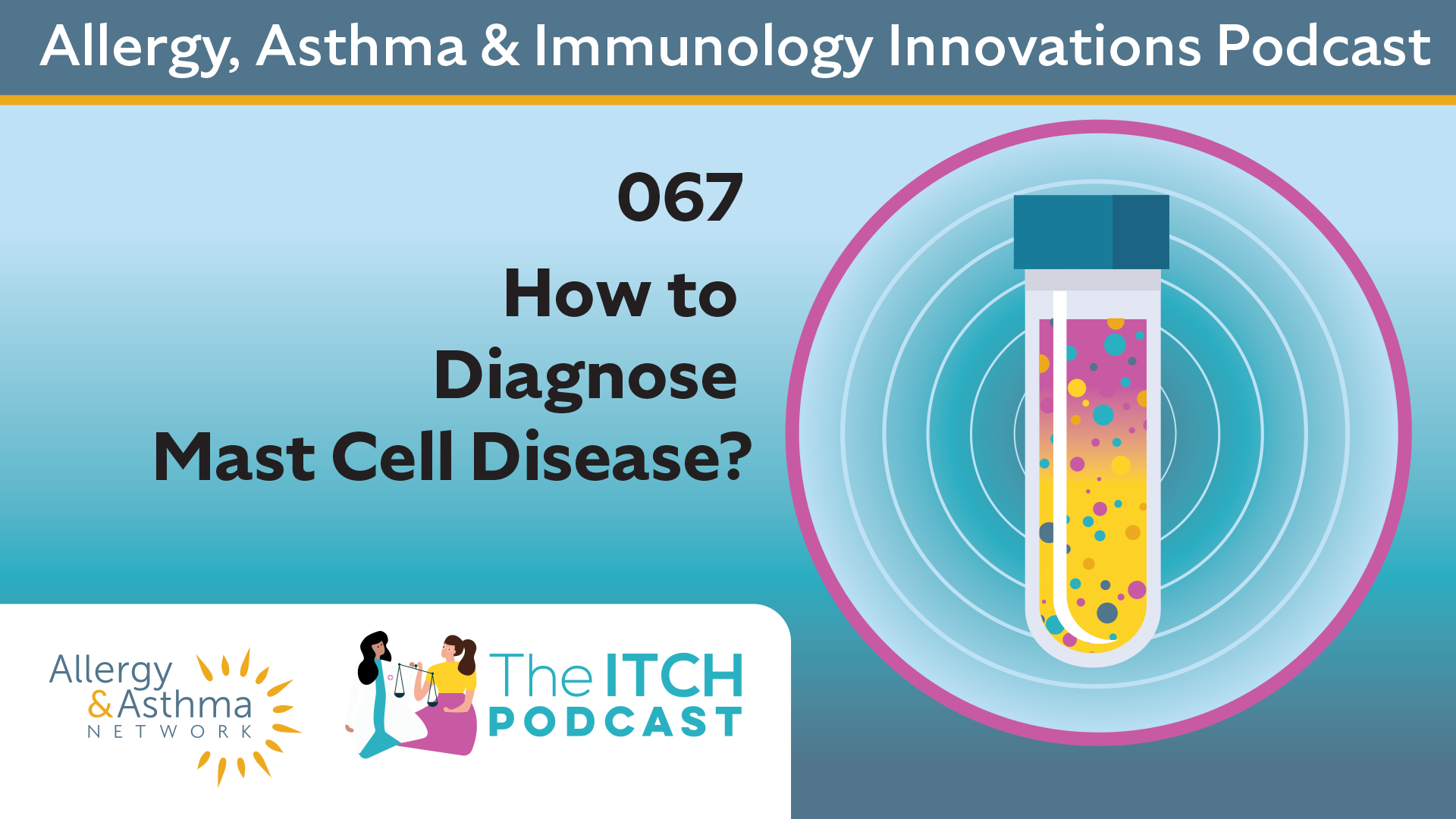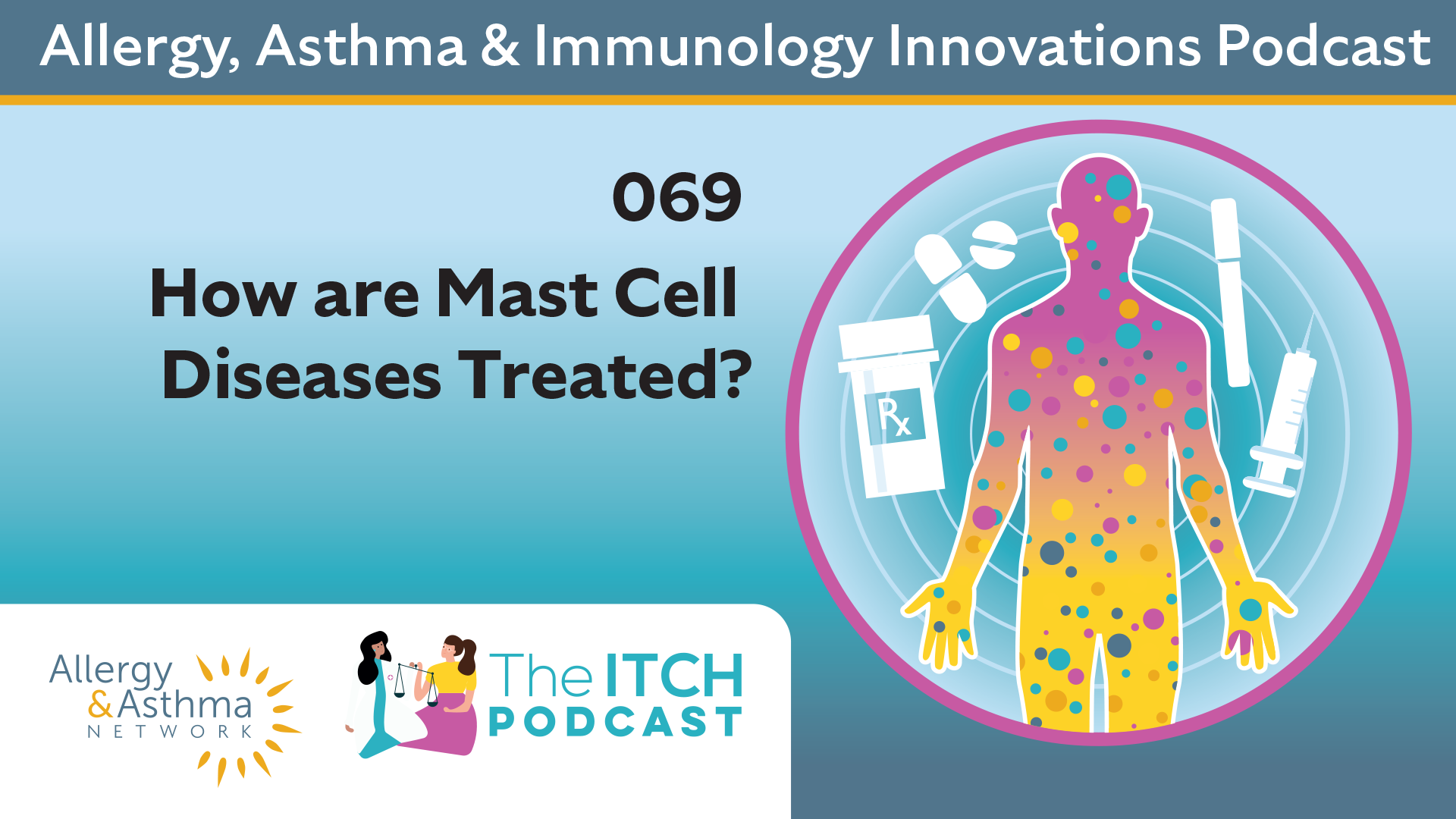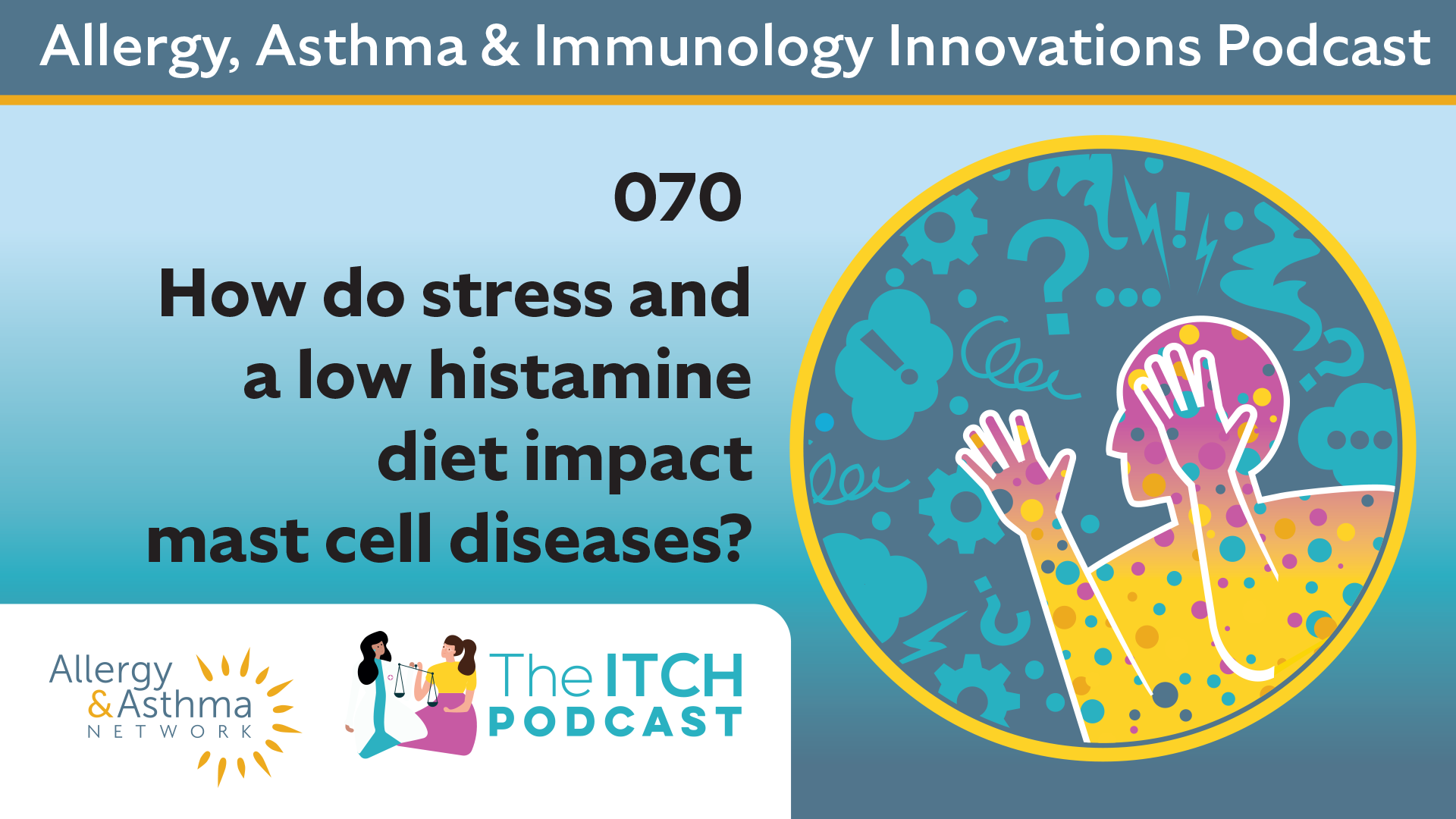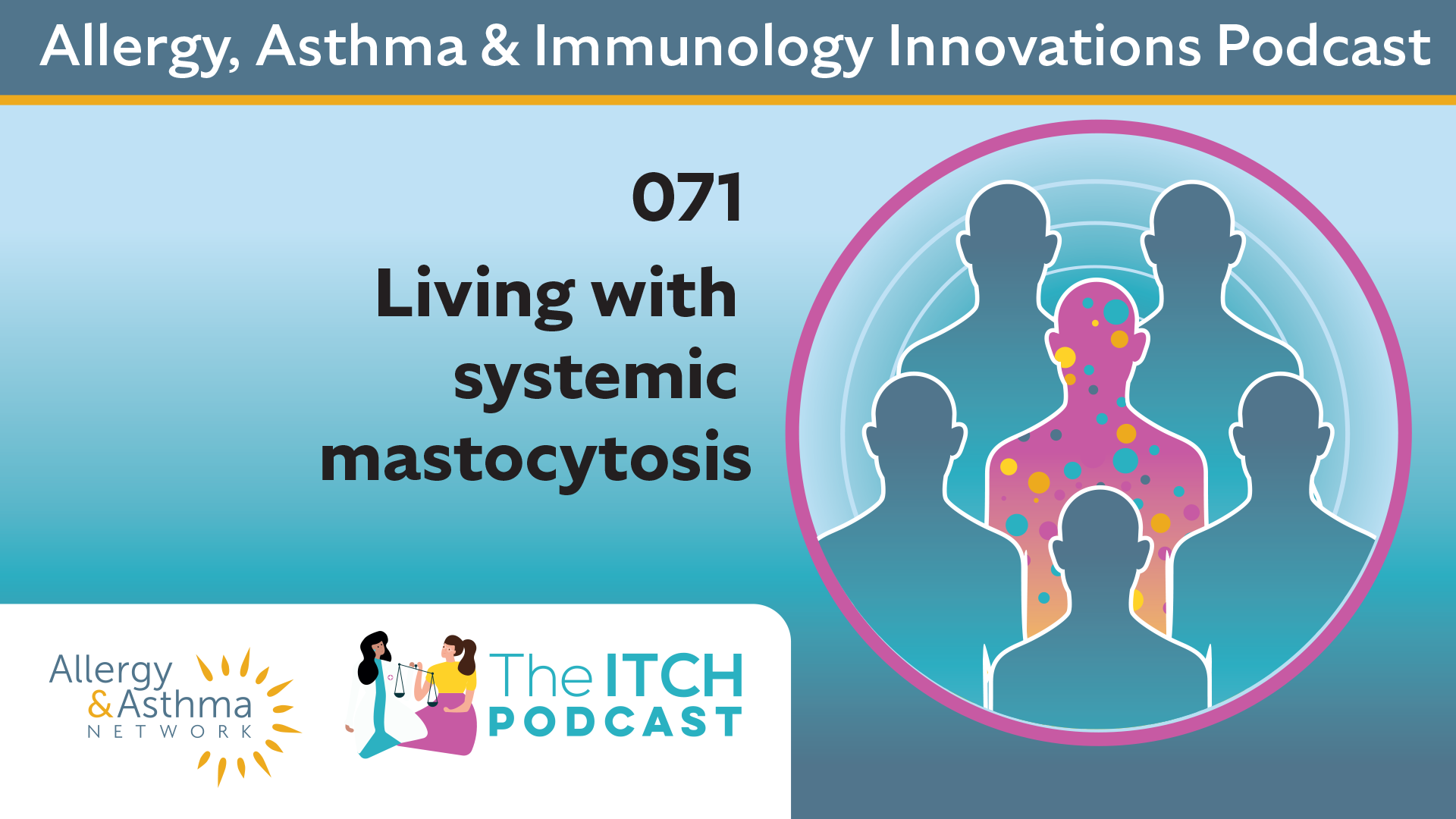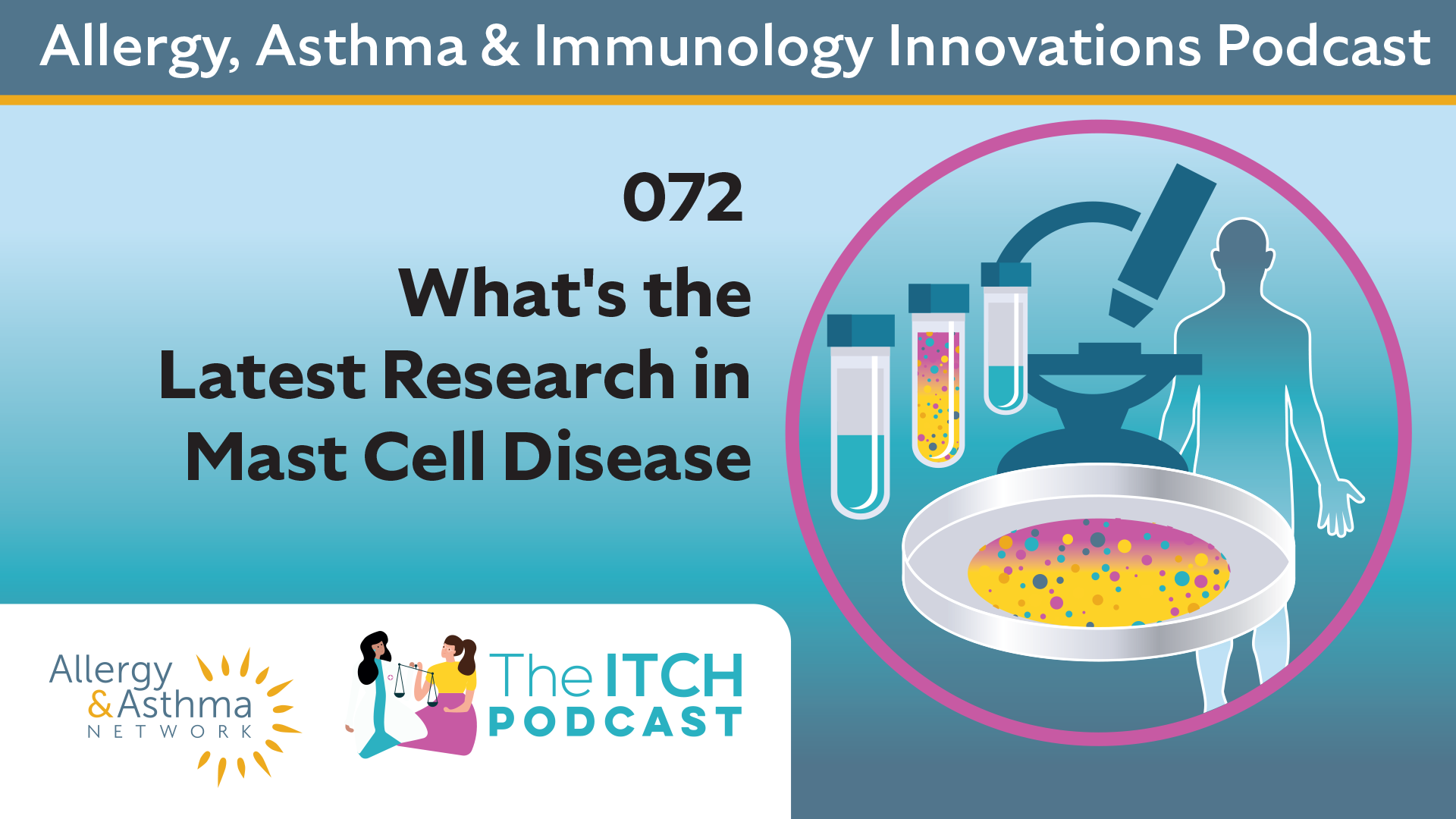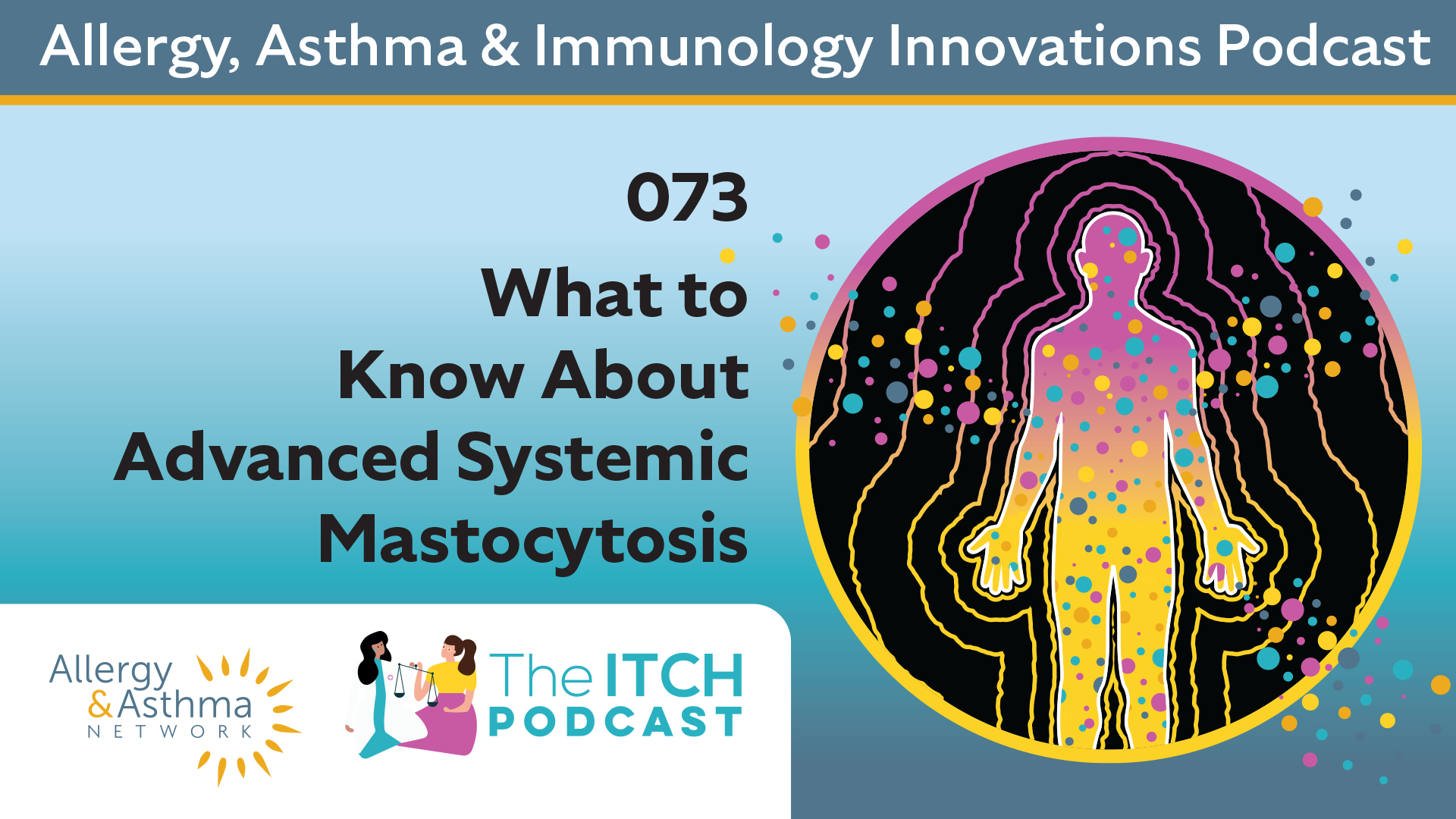Ep. 63: Mast Cell Diseases & Systemic Mastocytosis: The Basic Science
Part of the series: Allergy, Asthma & Immunology Innovations Podcast
This podcast was made in partnership with Allergy & Asthma Network. We thank Blueprint Medicines for sponsoring this podcast.
LISTEN TO EPISODE 63:
iTunes • Spotify• Google • Amazon Music • YouTube
The basic science of mast cells is the first episode in our 6-part series exploring Mast cell diseases. To start the series, we explore the intricate workings of mast cells by diving into how they work and what happens when something is off balance.
Have you ever wondered what releases histamine and how this happens? Then this episode is for you!
What we cover in our episode about mast cell disease:
What are mast cells, and what do they do?
What are the different types of mast cell diseases?
Mastocytosis
Mast Cell Activation Syndrome
Hereditary Alpha-tryptasemia
The 7 types of mastocytosis
The cause of mast cell disease
KIT gene mutation in Mastocytosis
What are mast cell diseases?
Mast cells release chemicals called mediators that start our body's natural defence system, which is the inflammatory response. This response protects us against harm from invaders such as bacteria.
Mast cells malfunction and become overactive or overproduced, they can trigger a cascade of symptoms, leading to a condition known as mast cell disease. This complex spectrum of disorders encompasses three main types:
Mastocytosis is an overabundance of mast cells. It is characterized by an excessive accumulation of mast cells in the body, particularly in the skin.
Mast cell activation syndrome (MCAS) is when mast cells act up without a trigger. The mast cells become excessively active, releasing their mediators even without an external trigger.
Hereditary Alpha-Tryptaseemia is an overproduction of chemicals. It is a rare genetic condition caused by a mutation in a gene that codes for alpha-tryptase, a mediator released by mast cells. This mutation leads to an abnormally high level of alpha-tryptase in the blood.
More in the Mast Cell Disease Series:
More resources about mast cell disease:
Mast Cell Disease page: https://allergyasthmanetwork.org/health-a-z/mast-cell-diseases/
What is Anaphylaxis? https://allergyasthmanetwork.org/anaphylaxis/
What is Epinephrine? https://allergyasthmanetwork.org/anaphylaxis/what-is-epinephrine/
Resources consulted in the making of this episode:
Mast Cell Disease from Allergy Asthma Network
Overview, Diagnosis, Definitions and Classification From The Mast Cell Disease Society
Mastocytosis: a mutated KIT receptor induced myeloproliferative disorder by Anindya Chatterjee, Joydeep Ghosh and Reuben Kapur
We thank Blueprint Medicines for sponsoring this podcast.

